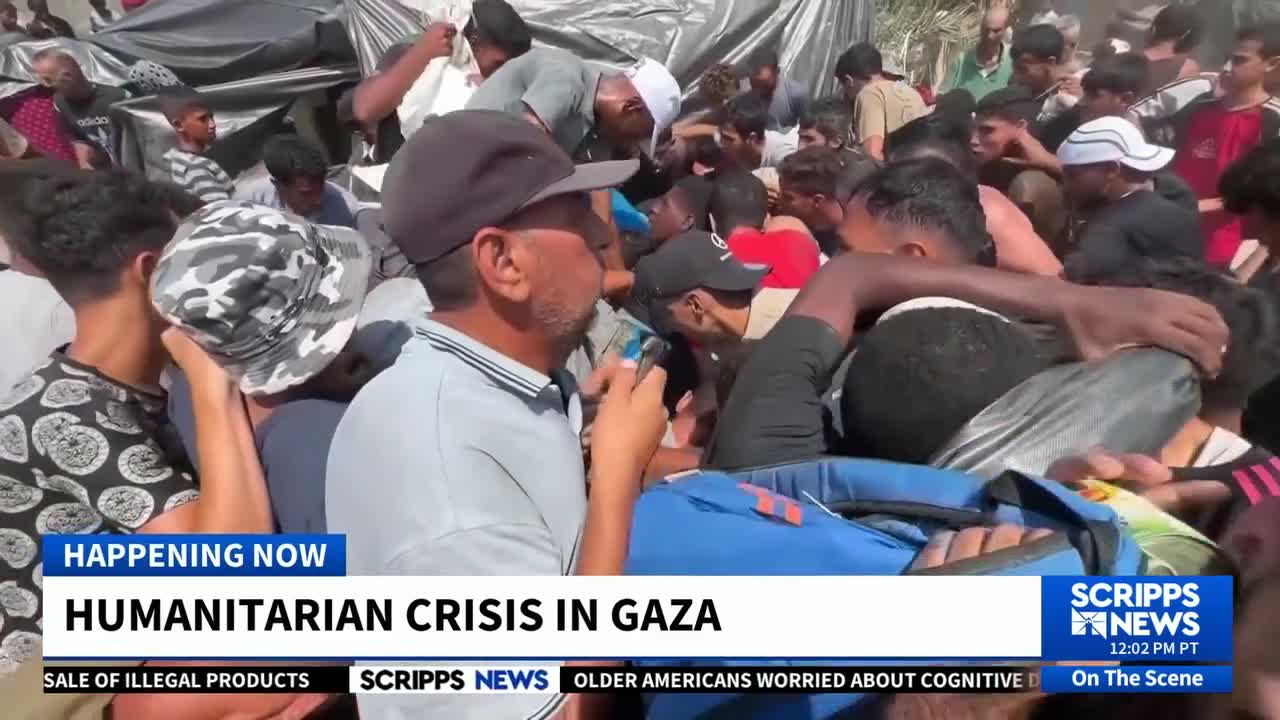World
Food Airdrops Begin in Gaza Amid Calls for Increased Aid

Food airdrops have commenced in Gaza, coinciding with a temporary pause in military operations by Israel in three heavily populated areas. On Sunday, Israel, alongside Jordan and the United Arab Emirates, delivered approximately 20 tons of food supplies. This amount is significantly lower than the pre-war average of 600 aid trucks that entered Gaza daily, highlighting a substantial shortfall in addressing the humanitarian crisis.
The airdrop initiative follows previous attempts by the United States and its allies last year, which were deemed ineffective in adequately reaching the population of over 2 million residents in Gaza. Issues with parachute malfunctions during those efforts even resulted in tragic fatalities, including children who were struck by falling aid packages.
Israeli officials have described the current pause in military activities as a “tactical pause,” allowing for increased aid deliveries. This pause lasts for 10 hours daily, although it remains uncertain how many days this arrangement will continue. In statements made by Israeli Prime Minister Benjamin Netanyahu, he emphasized the need for safe humanitarian routes into Gaza, asserting that “in every route we choose, we will need to continue allowing minimal humanitarian supplies.”
Despite these developments, aid organizations have expressed grave concerns, pointing out that the current measures are insufficient. A particularly harrowing report from the Associated Press detailed the death of a 5-month-old infant who succumbed to malnutrition, a stark reminder of the urgent need for comprehensive support. UNICEF communications specialist Joe English remarked, “Ultimately, what is needed is a ceasefire, because for a child who is malnourished, it is not enough to be able to reach them one time.” He noted that long-term treatment is essential for recovery, and without it, vulnerable children will continue to deteriorate.
In a related effort, celebrity chef José Andrés, founder of the nonprofit organization World Central Kitchen, called for immediate action in an opinion piece published in The New York Times. He stated, “People of good conscience must now stop the starvation in Gaza,” urging a collective response beyond assigning blame between conflicting parties.
On the diplomatic front, the United States has recently withdrawn its negotiators from Qatar, citing a lack of good faith from Hamas in pursuing a ceasefire. As of now, discussions aimed at resolving the ongoing conflict have not resumed.
The situation in Gaza remains critical, with humanitarian organizations insisting that more robust solutions are necessary to alleviate the suffering of those affected by the ongoing conflict.
-

 Lifestyle3 months ago
Lifestyle3 months agoLibraries Challenge Rising E-Book Costs Amid Growing Demand
-

 Sports3 months ago
Sports3 months agoTyreek Hill Responds to Tua Tagovailoa’s Comments on Team Dynamics
-

 Sports3 months ago
Sports3 months agoLiverpool Secures Agreement to Sign Young Striker Will Wright
-

 Lifestyle3 months ago
Lifestyle3 months agoSave Your Split Tomatoes: Expert Tips for Gardeners
-

 Lifestyle3 months ago
Lifestyle3 months agoPrincess Beatrice’s Daughter Athena Joins Siblings at London Parade
-

 World3 months ago
World3 months agoWinter Storms Lash New South Wales with Snow, Flood Risks
-

 Science3 months ago
Science3 months agoTrump Administration Moves to Repeal Key Climate Regulation
-

 Science2 months ago
Science2 months agoSan Francisco Hosts Unique Contest to Identify “Performative Males”
-

 Business3 months ago
Business3 months agoSoFi Technologies Shares Slip 2% Following Insider Stock Sale
-

 Science3 months ago
Science3 months agoNew Tool Reveals Link Between Horse Coat Condition and Parasites
-

 Sports3 months ago
Sports3 months agoElon Musk Sculpture Travels From Utah to Yosemite National Park
-

 Science3 months ago
Science3 months agoNew Study Confirms Humans Transported Stonehenge Bluestones









